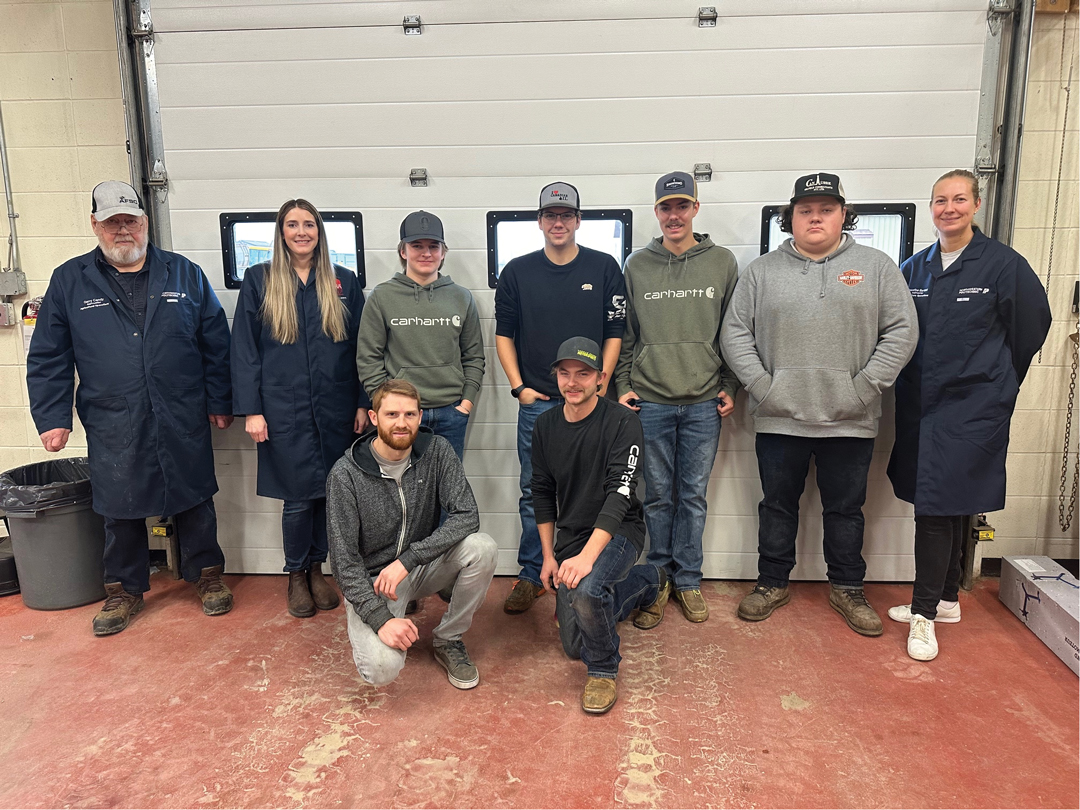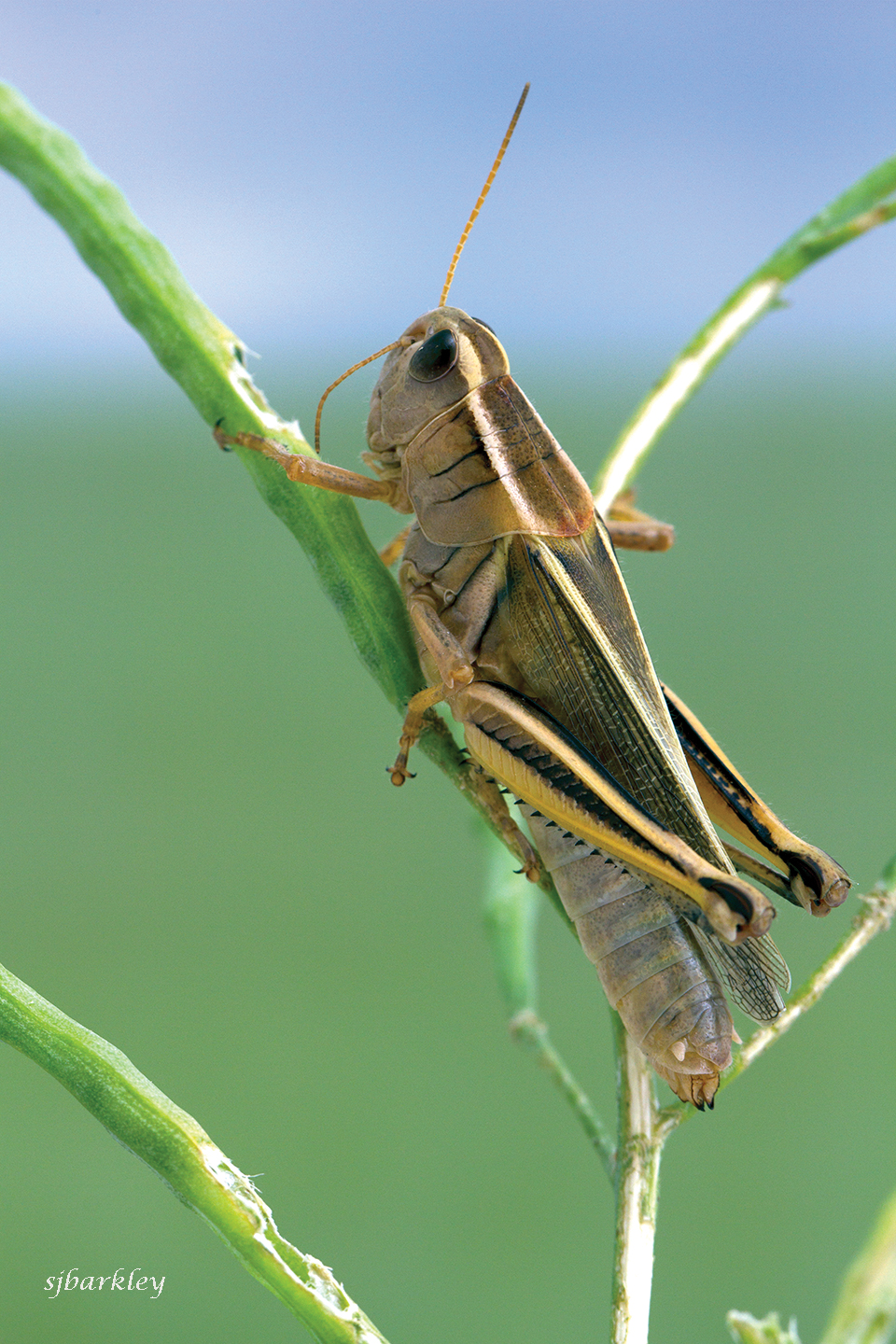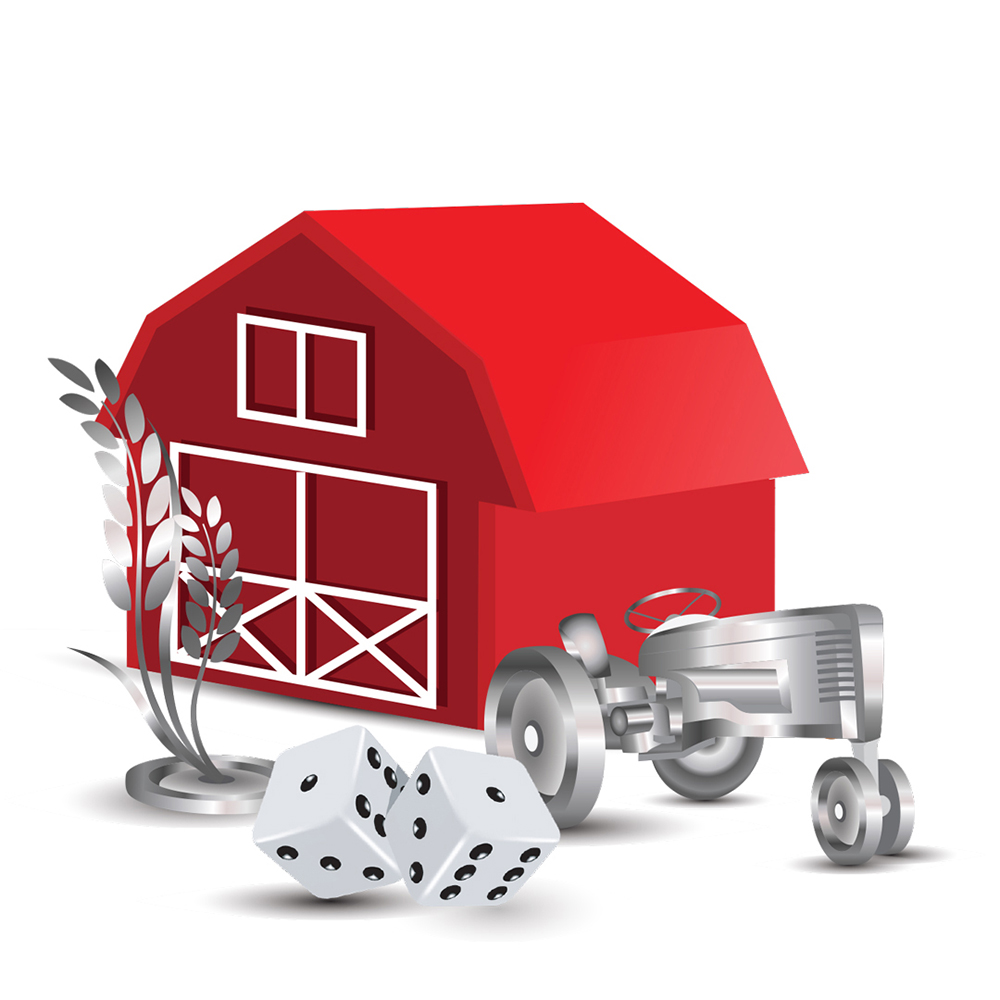A PRACTICAL FARM EDUCATION
BY TIM PARENT • PHOTO COURTESY OF NORTHWEST POLYTECHNIC
This past fall, Northwest Polytechnic (NWP) in Grande Prairie launched its new two-year Agriculture Operations Diploma Program. “The program is unique because it focuses on preparing people to work in the ag industry on farms, in retail and in sales,” said NWP agriculture operations instructor Josefine Bartlett. The program’s curriculum balances agricultural theory with hands-on experience, and the school year aligns with the seasonal demands faced by students who live and work on family farms, she added. “It’s a one-of-a-kind program with nothing else quite like it across Canada.”
The needs of Peace Country agriculture were accounted for in the program’s curriculum development process and input was provided by local crop and livestock farmers and industry representatives, said Bartlett. While it addresses these regional needs, it is geared to the broader agriculture sector. It is intended to address the labour needs and operational complexities of today’s agriculture sector.
In a trade school-like setting, students study agricultural theory and develop practical, widely applicable skills. Study areas include agricultural mechanics and crop production as well as livestock health and animal husbandry. Students also earn their air brake endorsement and receive Class 1 MELT training.
One of six students in the inaugural cohort, the program was a perfect fit for Karson Wasylciw, whose family farm is located near Worsley. “I’ve always wanted to farm,” he said. “Coming from a family farm where it’s just me, my
dad, my mom and my younger sisters, I wanted to go to an ag-type class. I looked at different programs but there just wasn’t one that seemed to fit what I was looking for.
“When this program came up, and I saw what it had to offer and how widespread the learning opportunities would be, it was the best fit. It felt more aligned with my goal of becoming a farm owner,” said Wasylciw. He was especially drawn to the program’s hands-on learning aspect and welcomed the opportunity to study the inner workings of machinery he may have taken for granted on his farm. “You look at a transmission, you put it in gear and off you go. Here, you pull it apart and learn how and why it does what it does.”
The program’s flexible schedule is designed with the farming community in mind. Classes run from November to mid-April to accommodate students with seeding and harvest responsibilities. “That was also a big draw for me,” said Wasylciw. “They understand that the season is so incredibly intense from seeding to harvest and work around it.”
Students also earn credit for work placements during the summer. These can be arranged by NWP and completed on a farm, including their own family farm, with an agricultural retailer, crop science company or other agricultural business.
Since the program’s launch, the response from the local community has been overwhelmingly positive, and its future is bright, said Bartlett. “It’s been really fun. We’ve had excellent feedback from the community and growers. We’ve had many people calling in, asking when they can apply for the next cohort. So, it’s been great talking to people interested in participating in the program. There is definitely a lot of enthusiasm out there.”
For more information, visit nwpolytech.ca.







Comments